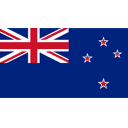Doing business in Italy with an Italy PEO & Employer of Record
Italy has several factors that are appealing to overseas business expansion. They’re the 3rd strongest economy in the EU and the 8th largest exporter in the world. However, their economic structure is heavily seeded with small and medium-sized companies that are the backbone of the Italian industry. Clustered in areas like the Industrial Triangle of Genoa-Milan-Turin, or Northeast and Central Italy, where luxury goods production and others predominate, this type of manufacturing sector is unique. Italy’s strong position in the European markets and access to a skilled labor source attract companies who are eager to partner with local talent.
As a country, Italy has large numbers of trade organizations and unions that rely on Collective Bargaining Agreements (CBAs). For businesses who are ready to explore a new location in the country, it can be a roadblock to quick openings. Although a company has to belong to the relevant trade organization to be affected by such agreements for its employees, failure to do so could mean missing out on a highly skilled labor force. Between the navigation of local laws and regulations, and the nuances of employee contracts that are affected by CBAs, entering the Italian business community can be daunting. The use of a Professional Employer Organization (PEO) can accelerate business openings and ease the paperwork burden for new startups.
Why rely on a PEO in Italy?
Professional Employer Organizations (PEOs) are a way for businesses to test the waters in Italy without setting up a legal entity. They can hire all employees on your behalf, and serve as their employer, keeping all labor contracts, taxes, and benefits in compliance and aligned with CBA requirements. The Italian PEO continues to administer payroll and Human Resources tasks, while your company remains under your direction. In addition, the local presence of a good PEO or Employer of Record (EOR) gives them an edge in recruiting the top talent and assisting with other business start-up requirements, such as visas or office location. We’ll talk about the top Italian PEO/EOR companies below.
Best Italy PEOs & Employer of Records
Horizons
Horizons is active globally and has a portfolio that speaks to their versatility. They zero in on local, focused solutions in each country. Global’s comprehensive approach to their partnerships allows them to guide their clients with location services, staffing, payroll, recruitment, and more.
In Italy, Horizons is able to assist new companies with turnkey startups. By serving as the Italy PEO/EOR, they can expedite hiring and recruitment efforts, providing a fluid interface that deals with language, contract drafting, benefits packages, and more. Their varied clients are an indicator of their range of offerings for small businesses on up – a good match for the Italian markets.
Website: Horizons
Global PEO
Global PEO has services available in Italy and over 180 countries worldwide. Speed is a strong point. Global PEO works to quickly hire staff and get them onto their managed platform for payroll and other HR needs. Clients are then able to access the web platform to check on updates and necessary information regarding their employees.
After onboarding, Global PEO continues the PEO relationship as long as needed. They can serve as the external Human Resources department, handling payroll, benefits, and more while leaving the actual management of the business to its owners. They advertise a seamless employee leasing experience in Italy.
Website: GlobalPEO.com
Sky Executive
Sky Executive is a platform-based PEO offering that offers support for new overseas businesses in over 100 countries. Their workforce support is largely automated, functioning via a SaaS platform online.
They’re lighter on the recruitment aspects, but if you’re ready to move forward with staff, they can get payroll processed quickly while avoiding any problems with complicated contracts, benefit arrangements, or local compliance. Their pricing structure reflects their standardized approach to services and can be a straightforward way to hire and get to work rapidly.
Website: SkyExecutive.global
Request a Proposal
If you would like to expand your business operations into Italy, we can connect you with an Italy PEO that best fits your needs at a cost-effective price. Fill out the form today and we’ll tap into our extensive database of partnerships to give you a full rundown with the best potential PEO matches for your company.
How useful was this post?
Click on a star to rate it!
Average rating 4.9 / 5. Vote count: 54
No votes so far! Be the first to rate this post.





































